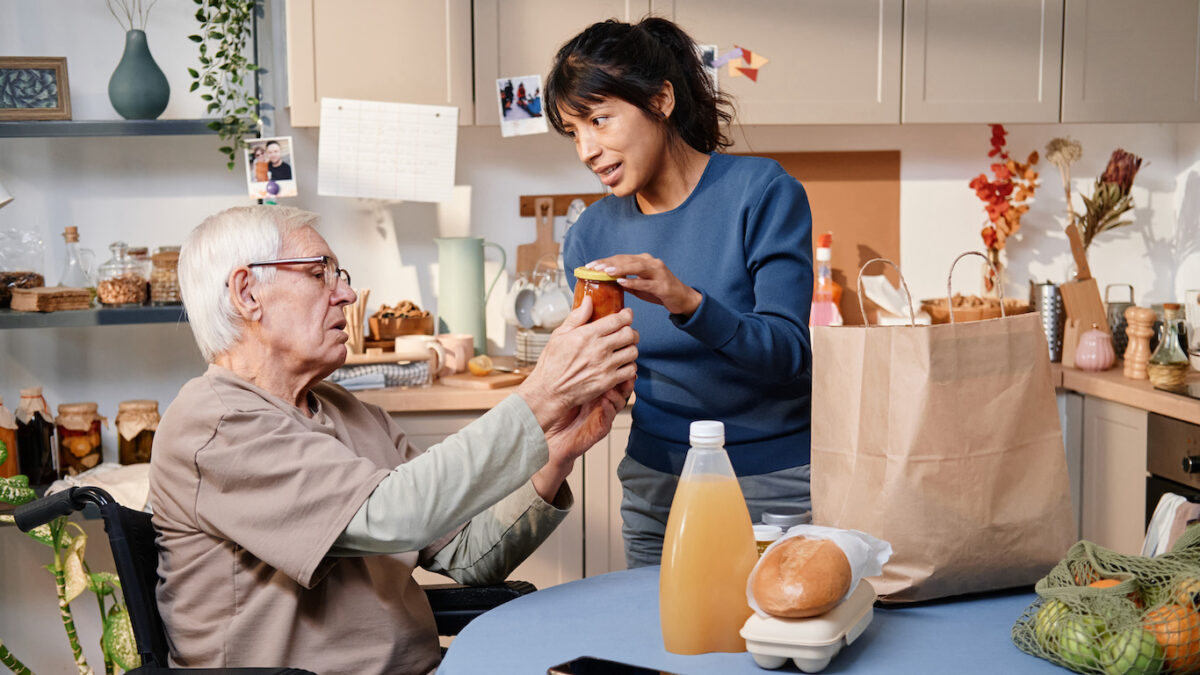HLTH 2023 reflection: The trusted role of caregiving

As many of us within the healthcare ecosystem prepare to gather in Las Vegas next week for HLTH 2023 to discuss our industry’s most pressing issues, I find myself reflecting on the value of home care, which will transform how we think of healthcare – not only for the aging population, but for so many more, including chronically ill, high-risk patients, and those living with the impact of poor social determinants of health.
During my years as a post-doctoral research fellow at Stanford, I focused on understanding healthcare delivery innovation through the lens of value-based care. Models of care leveraging non-medical caregivers working at “the top of their license” commanded my attention and captured my imagination with their potential to impact health outcomes at scale. In fact, I never imagined how the concepts that my Stanford colleagues and I studied as part of an “academic exercise” to create a late-life model of care would become some of the leading trends in the healthcare industry over the next several years. I’ve now witnessed these concepts in action, working on the industry side of the healthcare continuum with some of the largest payors and employers in the U.S., whose populations make up Sharecare’s nearly 13 million members. I’ve seen the evidence for the promising future of care that is centered in the home – and I’m here to tell you that I am a believer.
Key stakeholders in the U.S. healthcare industry – including major payors, employers, and government entities like the Veterans Administration – are doubling down on providing home-based care and support services to their populations, including support for unpaid family caregivers. They are recognizing the untapped potential to drive clinical outcomes by leveraging non-medical caregivers to provide immediate support for activities of daily living, alleviate family caregiver burden, address unmet social needs, close gaps in care, and conduct early identification and intervention for clinical and social risk factors leading to avoidable acute care utilization.
For example, the number of Medicare Advantage plans offering in-home support services increased by nearly 50% between 2022 and 2023, with 1,091 plans offering these services as a health-related supplemental benefit. Importantly, offering these benefits not only allows health plans to remain competitive in an increasingly dense market, but also helps to address the national caregiver shortage that threatens the health and well-being of the growing population of older adults who wish to age in place.
The home is the last mile of healthcare. By working with professional caregivers to extend the reach of care management programs and clinical teams with a trusted hand, it becomes possible for us to extend care directly into the patient’s home. The trusted role of caregiving will be one of the biggest catalysts for innovation in the next 5 years. When leveraged to serve as “eyes, ears, and arms” of health plans and other healthcare stakeholders, caregivers will drive value in care delivery so that individuals may live better, longer.
Despite this potential, recent reports highlight concerning risks in the industry. Several home care staffing platforms and companionship care companies have come under significant media scrutiny and face lawsuits for thousands of cases alleging harassment, physical assault, sexual assault, and elder abuse. These implications undermine the public’s trust and threaten to compromise the future of healthcare delivery in the home if left unaddressed – especially where these complaints include the involvement of health plans that reimburse these services. However, with diligent oversight of practices for home care safety, security guidelines, stringent vetting, and quality management protocols – we can maintain and build trust, while also demonstrating great respect for the vital role of caregiving.
With all these issues on my mind of late, I’m eager to join in a panel discussion alongside leaders from Humana, Rock Health, Elara Caring, and Dispatch Health. On Monday, October 9, we will convene on the ways our industry can capitalize on emerging home care technologies and deployment models to enable longer and healthier independent living. I’m honored to be representing Sharecare in a conversation made up of some serious heavyweights from our industry, with whom I feel incredibly grateful to share the Sun Stage at HLTH.